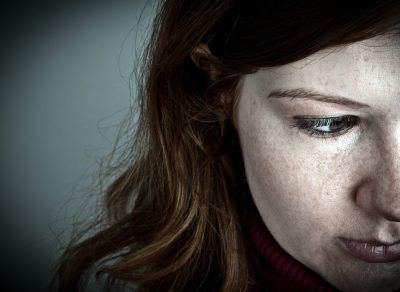Depression
 It has only been in recent years that depression has gone from being a bewildering, marginal, almost fashionable condition for some people to experience, to a serious condition that is undergoing more scrutiny and treatment. Depression used to simply be a regarded as a prolonged, negative emotional state that people could “get over” if they just set their mind to it. Today we know better, and understand that depression and substance abuse can be a powerful, negative combination. If you’d like to know more, just contact our trained admissions counselors at 866-349-1770 for details.
It has only been in recent years that depression has gone from being a bewildering, marginal, almost fashionable condition for some people to experience, to a serious condition that is undergoing more scrutiny and treatment. Depression used to simply be a regarded as a prolonged, negative emotional state that people could “get over” if they just set their mind to it. Today we know better, and understand that depression and substance abuse can be a powerful, negative combination. If you’d like to know more, just contact our trained admissions counselors at 866-349-1770 for details.
What is Depression?
At its simplest, depression can be described as a lengthy period of dejection, despondency or sadness. It is when someone feels sustained, negative emotions for a long period of time. If a feeling of depression lasts for more than two weeks, it may be what is termed “clinical depression,” which can have many different causes. Depression is a complex condition in that it can be caused by physical or psychological factors, or, in many cases, a combination of the two.
There can be genetic or physiological reasons for clinical depression, or there can be a very real, emotional cause, such as bereavement and lingering grief over the death of a loved one. It’s because of the complex interplay of these numerous factors that depression and substance abuse may often be related, with one causing or contributing to the other.

Recognizing Signs of Depression
Certain types of mental illnesses are more likely to be part of a dual diagnosis than others. While the most common mental illnesses associated with dual diagnosis are mood disorders, several others rank highly on the list of most commonly associated with addiction.

● Persistent feelings of sadness or hopelessness
● Feelings of being useless and better off being dead
● Lack of interest in activities that were formerly favorites
● Inability to sleep, or inability to wake up and get out of bed
● “Foggy” or “clouded” thinking and an inability to focus
These and many other symptoms are signs of depression, especially if they persist for a long period of time. And when depression and substance abuse come together, they can feed off each other and make each condition stronger.
How does a Person Develop Dual Diagnosis Problems?
Because of the many complex factors leading to a dual diagnosis condition, depression doesn’t necessarily have to cause substance abuse and vice versa, although these are certainly possible outcomes.
When a person experiences a prolonged bout of sadness of negativity, the use of substances like alcohol or drugs can often provide an escape from these feelings. Once a person with clinical depression realizes that some other substance “makes the bad feelings go away,” it’s perfectly understandable why he or she would then become addicted. That person is heavily relying on these substances as a desperate, informal and ultimately harmful form of self-medication to escape the feelings.
In the same way, someone that inadvertently becomes addicted to substances may feel guilt or sadness over having become addicted. This creates a “negative feedback loop” that merely grows, as the depression persists, becoming more pervasive as the person’s addiction grows. However, because the addiction can mitigate the feelings of depression, the cause of the depression itself continues to grow.
In either case—and in many other scenarios—the cycle of depression and substance abuse becomes so intertwined that traditional treatments and therapies become ineffective. To treat depression without treating substance addiction could merely reinforce one of the problems, and vice versa. Both conditions have to be acknowledged and treated in a very specific fashion to see real, tangible results.
So what can people do when depression and substance abuse are both part of an equation?
The Treatment for Depression and Substance Abuse
The immediate concern in the beginning is the addiction treatment, specifically the physiological issues that would impair meaningful recovery. Physical addiction is the most notable, so withdrawal and detoxification have to be addressed first before the other issues can be looked at. This stage of depression and substance abuse is identical to traditional treatments, in that a body must be purged of the substances first to ensure a better starting point.
Once detoxification is complete, the dual diagnosis treatment can begin. This is a combination of proper environment, proper treatment and proper therapy that is all focused around the specific requirements of that individual. There is a mix of individual and group therapy depending on the situation, but the aim here is to not just help the with coping strategies for relapsing, it is addressing the emotional issues that caused the depression.


A Holistic Approach To Treatment
There may be physiological issues, past trauma, or even prolonged, serious self-esteem issues that may play a role in the development of clinical depression. A holistic approach addresses all of these. Depression and substance abuse are treated at the same time, but in different ways, with the recovery process focusing on coming to terms with the depression. In some cases, there may even be the administration of medical treatments, such as prescribing anti-depressants.
The treatment of the addiction is also handled carefully. There are different therapies that may be administered at different stages, such as group or individual treatments, but the therapy methods may also greatly differ. Some may feel more comfortable with faith-based therapy, while others respond more positively to music therapy.
Get Help with Depression and Substance Abuse at Beachside
Our expert therapists are trained and experienced in treating dual diagnosis patients with a series of effective treatments and therapies. The beautiful dual diagnosis treatment center facility at Beachside is the ideal location to start recovery and learn how to beat addiction and manage any co-occurring disorders for life. With high-quality medical treatment, compassion, and encouragement, our clients can move on to a happy and active lifestyle free from addiction and the stigma attached to mental illness. Relying on substances to mask the pain from a mental illness is no way to live your life. If you or a loved one is suffering from addiction issues that stem from, or, are the result of a co-occurring mental disorder, call and speak to the experts at Beachside today.
From the Blog
Mental Breakdown Treatment: Finding Your Path to Recovery
A mental breakdown signals the need for care and healing. Explore symptoms, causes, and effective treatments like therapy and stress management to support recovery.
read more



